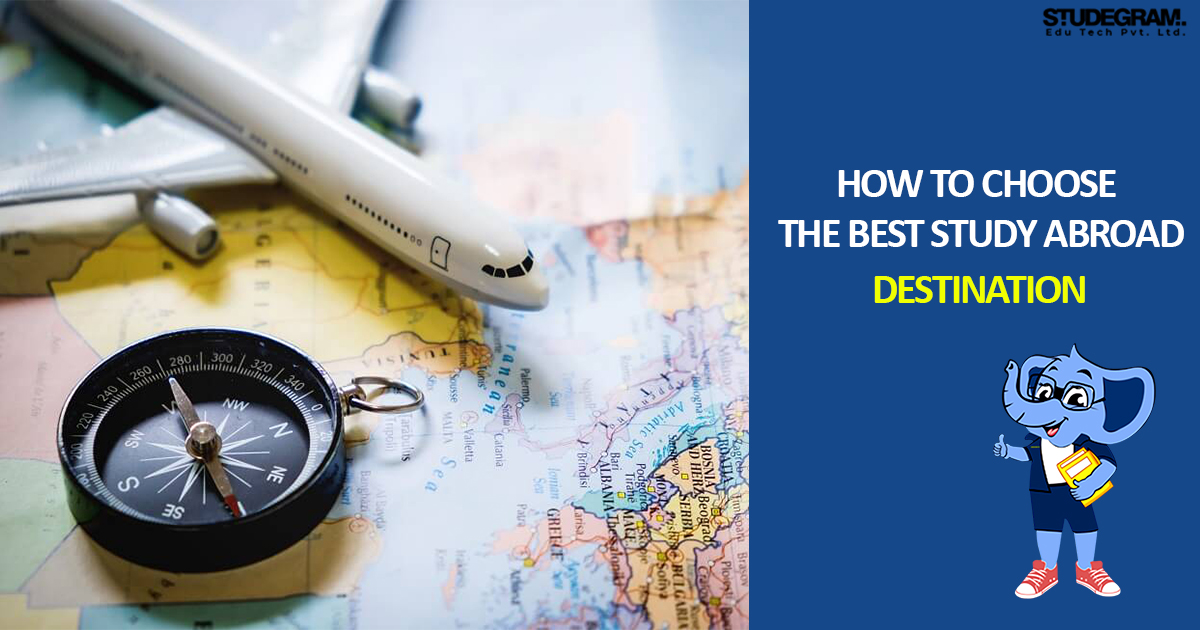Tips & Tricks to Stay Healthy While Studying Abroad
Studying abroad is a fascinating and engaging experience that allows you to immerse yourself in other cultures, discover unusual landscapes, and increase your intellectual horizons. However, in the midst of the excitement of adventure and academic endeavours, it is critical not to neglect the significance of staying healthy. International students face distinct obstacles when adjusting to a new environment, navigating unfamiliar healthcare systems, and managing stress. Here are some useful tips and tricks to help you stay healthy and prosper while studying abroad:
Research Healthcare Services: Before you leave for your study abroad destination, examine the healthcare services accessible in the host country. Get to know your area hospitals, clinics, pharmacies, and emergency contact numbers. Understanding the healthcare system will allow you to seek medical help if necessary.
Secure Travel Insurance: Invest in comprehensive travel insurance that covers medical emergencies, evacuations, and repatriation. Travel insurance will provide you with piece of mind by protecting you financially in the event of an unforeseen health-related incident while abroad.
Stay Up-to-Date on Vaccinations: Check to see whether any vaccines are advised or required for travellers to your study abroad destination. Schedule immunisations early in advance of your trip to ensure adequate protection against infectious diseases common in the area.
Maintain a Balanced Diet: Accept the opportunity to try new foods when studying abroad, but also strive for a balanced and healthful diet. Include lots of fruits, vegetables, whole grains, and lean proteins in your meals to promote general health and well-being.
Stay Hydrated: Stay hydrated by drinking plenty of water throughout the day, especially if you’re exploring new places or participating in physical activities. Carry a reusable water bottle to remain hydrated while on the run.
Practice Safe Food Handling: To avoid foodborne infections while travelling overseas, be careful of food safety practices. Wash your hands before eating, choose cooked or hot foods, and avoid eating raw or undercooked meats and shellfish in areas where sanitary standards differ from what you’re used to.
Get Adequate Sleep: Prioritise sleep, aiming for 7-9 hours of excellent sleep per night to improve your physical and mental health. To increase sleep quality, establish a nightly ritual, make your sleeping space comfortable, and minimise your screen time before bed.
Stay Active: Incorporate physical activity into your regular routine to stay fit and relieve stress. Explore your new surroundings by participating in outdoor activities, joining local sports clubs or fitness programmes, or simply going for leisurely walks.
Practice Self-Care: Prioritise self-care activities that encourage relaxation and stress reduction. Find techniques to preserve emotional balance and resilience during your study abroad experience, such as practicing mindfulness, journaling, engaging in hobbies, or obtaining counselling support.
Stay Connected: Create a support network of fellow students, neighbourhood people, and university officials to offer social support and assistance as needed. Regular communication with relatives and friends back home can help battle emotions of homesickness and loneliness.
Practice Cultural Sensitivity: Respect the cultural norms and conventions around health and wellness in your study abroad destination. Be open-minded and willing to adapt to local customs while also pushing for your own health.
Stay Informed: Stay updated about local health advisories, safety suggestions, and travel restrictions issued by the government or your home university. Stay up to date on COVID-19 protocols and standards to guarantee your health and safety while travelling overseas.
Seek Medical Attention Promptly: If you have any health problems or symptoms while studying abroad, do not hesitate to seek medical assistance right away. Contact local healthcare providers, go to neighbouring clinics or hospitals, or ask your study abroad counsellor for help.
Practice Good Mental Health Habits: Prioritise your mental health by using stress management techniques, being socially connected, and obtaining help from mental health specialists as needed. Be proactive in dealing with any mental health issues that may occur during your study abroad experience.
Stay Informed About Prescription Medications: If you use prescription medications, make sure you have a enough supply for the duration of your study abroad programme. When travelling with prescription prescriptions, be familiar with local rules and have the relevant papers.
By incorporating these ideas and strategies into your study abroad experience, you may prioritise your health and well-being while also enjoying the excitement of living and learning in a new country. Remember to stay informed, engaged, and prioritise self-care during your study abroad experience.


